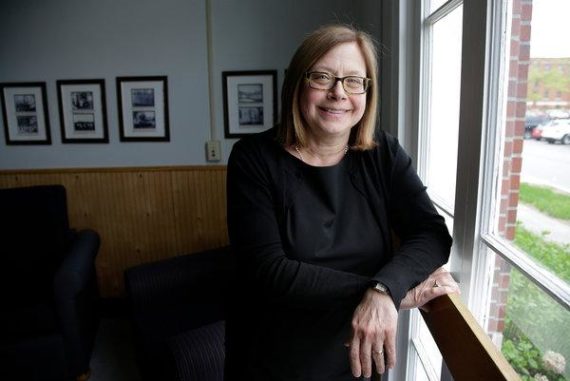
(11-21-18) One of the real blessings in my life is my role as a board member of the Corporation for Supportive Housing, a national non-profit that finds innovative ways to reduce homelessness. Through the board, I have met some of our countries most dedicated and creative advocates, including Deborah Burkart, who told me recently about a clever Northern Virginia project. Here is the Washington Post’s take on this unique approach to helping homeless veterans.
Bravo Deborah! Every community needs out-of-the-box thinking such as this.
Where ex-soldiers have socialized, they will soon find affordable housing
Published in The Washington Post. Written by Patricia Sullivan
A leak from the kitchen imperils a room where card players and potential pool sharks still occasionally congregate. The concrete-block walls exhale seven decades of cigar and cigarette smoke. The basement bar, built to accommodate more than two dozen, is never full — “On a good day, I might have five or six customers,” bartender Doris McNeil said.
So the Legion’s board decided it was time to sell the building, located on 1.4 grassy acres close to George Mason University in Arlington, Va. Developers pitched high-end, high-rise condos and housing for law students at nearby George Mason University.
But the old soldiers, sailors, Marines and Coast Guardsmen decided to sell to a local affordable housing agency, drawn to the possibility of a modernized Legion post that will be built as part of the project and of providing much-needed apartments for struggling vets.
It is an approach much like the one taken by religious organizations in the past dozen years to convert under-used space into low-cost housing in return for a new, smaller worship space and the moral satisfaction that they are living their faith.








